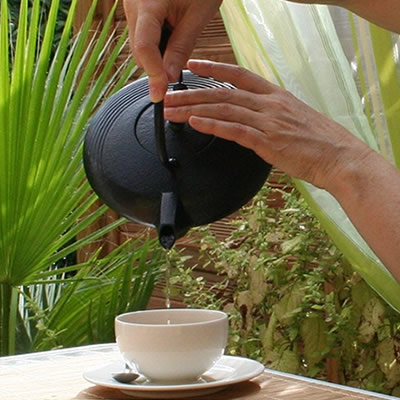
Tea, the world's most popular beverage (not counting water), has been shown to cause changes to the genomes of women. The changes are subtle, slight modifications, called 'epigenetic' changes. Changes were seen in genes known to be involved in controlling the activity of the hormone estrogen. The changes are thought to reduce inflammation and could help reduce cancer risk. Interestingly, changes were not seen in the genes of men. So ladies...it's tea time!
Image Credit
By Kristina Walter - Own work, Public Domain, https://commons.wikimedia.org/w/index.php?curid=4522536
